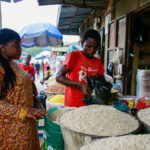It followed an announcement by South Sudan’s President Salva Kiir that there was an attempt by his erstwhile deputy Riek Machar to topple the government.
The violence has taken a dangerously ethnic dimension, with reports of over 500 people being killed. A United Nations compound in the capital Juba was breached; two Indian peacekeepers were killed, along with dozens of civilians the UN troops were trying to protect. The problem has the familiar ethnic divide between the Dinka and Nuer within the army and the ruling Sudan People’s Liberation Movement (SPLM). It has spread to other states not populated by these ethnic groups.
The crisis has roots in Machar’s declaring he no longer recognised the legitimacy of Kiir’s presidency. With elections looming in 2015, the country has become increasingly polarised; Machar has indicated he will stand as a presidential candidate under the SPLM.
Last July, President Kiir dismissed the vice president, several cabinet ministers and the secretary general of SPLM. Also sacked were elected governors of Lake and Unity States, allies Machar.
Machar listed four major failures of Salva Kiir for which he said he should step down before the next elections. These are: failure to fight corruption in government; not ending poverty; failure to end insecurity, and increasingly becoming dictatorial in decision-making.
Kiir claimed to have recovered 40 billion U.S. dollars from corrupt officials. Those targeted and their allies saw the merit of fighting corruption as ’ethnic exclusion’.
In Bor town, a UN helicopter and a plane sent to evacuate American citizens, were shot at and suffered damages. This gives the conflict wider ethnic reverberations and underlines failure by the government to ensure countrywide security.
It is unfortunate that this should be happening in a young democracy like South Sudan. Political independence was never going to be an easy undertaking. Building a nation from the ruins of decades of civil with the Sudan was even a more daunting task. But this has been made even harder by the current violence, which the African Union and the UN must strive to bring an end to.
The peace initiative launched by governments in eastern Africa must be welcomed by both sides; even if an initiative which should have come with the 2005 peace accord and independence. This is what African Union’s preventive diplomacy should be about. Nigeria, Senegal, Kenya, Uganda and South Africa – which have invented creative initiatives for nation-building – should help South Sudan build institutions for nation building and strong democracy institutions out of multi-ethnic, multi-religious and regionally unequal levels of economic development.
SPLM’s impending national convention and crafting a new constitution for the country should attract support; it should not be a source for further division among the people. The South Sudan government has the responsibility to assure the many ethnic divides of protection under the law.
Any notion of a military coup, if indeed that was the case, should not have a place in the new South Sudan, and must be condemned.
A united South Sudan should be the goal of everyone. President Kiir has taken the right step in expressing willingness to talk with Mr Marchar in order to put an end to the orgy of violence that has gripped the country. Mr Marchar should not prove an unwilling partner for peace.
SPONSOR AD
South Sudan’s precipitous descent
It followed an announcement by South Sudan’s President Salva Kiir that there was an attempt by his erstwhile deputy Riek Machar to topple the…
 Join Daily Trust WhatsApp Community For Quick Access To News and Happenings Around You.
Join Daily Trust WhatsApp Community For Quick Access To News and Happenings Around You.



